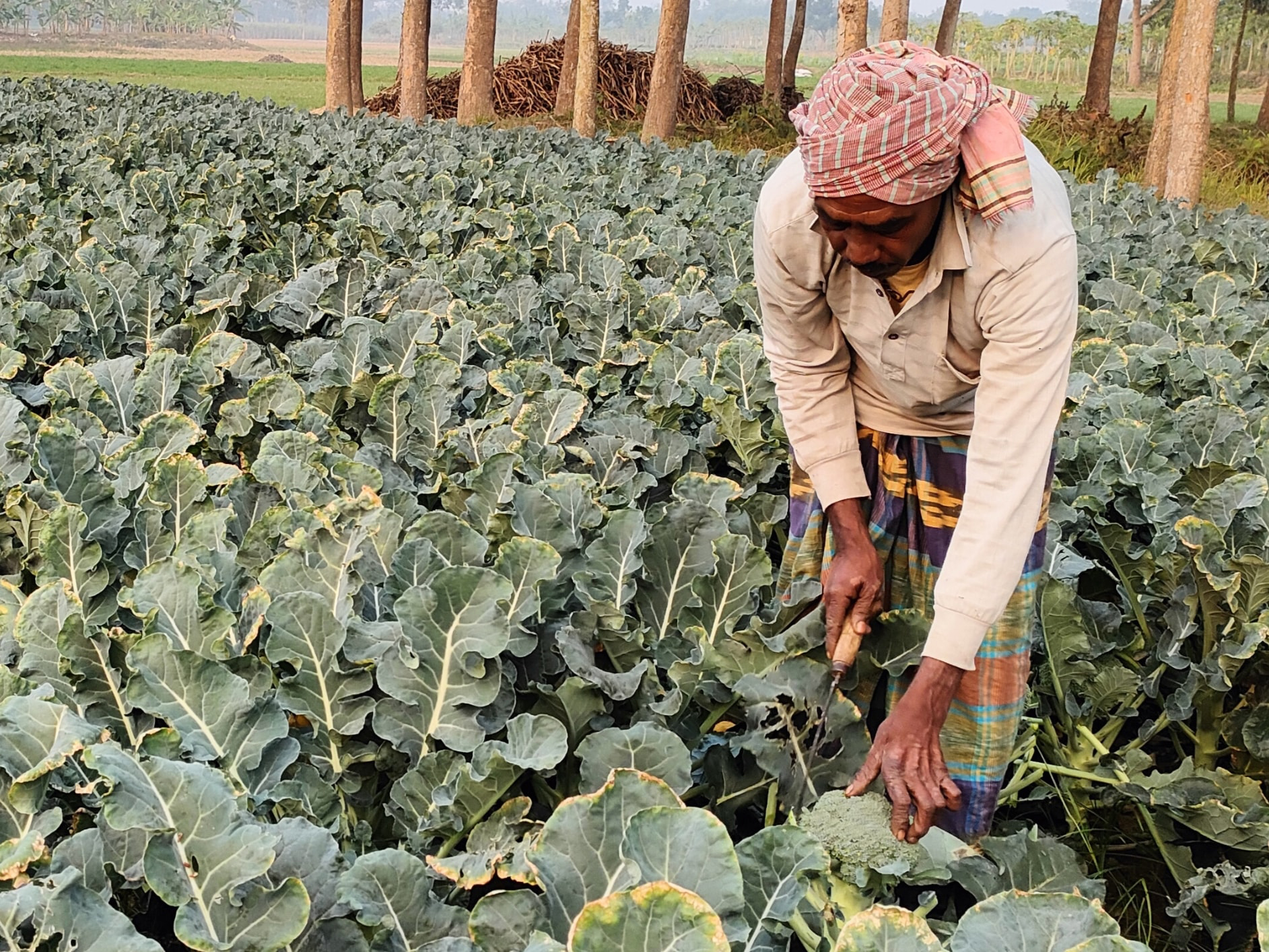
RAJSHAHI, Dec 27, 2022 (BSS) - Farming of broccoli, a non-conventional winter vegetable, has brought diversification in kitchen markets as many of the grassroots farmers are getting more income from the vegetable cultivation compared to other conventional ones in the region, including its vast barind tract.
Acreage of the vegetable is rising gradually by dint of its lucrative market price and gradually mounting demand.
Like the previous couple of years, the newly harvested vegetable along with other ones has appeared in the local markets abundantly at present making both the sellers and buyers happy.
As a whole, the vegetable has brought a diversification in the kitchen markets besides a new dimension in the local economy, experts' sources said.
Tozammel Haque, 54, a farmer of Pirijpur area in Godagari upazila, has cultivated broccoli on around one bigha of land and he's harvesting his cash crop for the last couple of weeks with satisfactory yield and market price.
"I have been selling broccoli at Taka 50 per piece since the beginning of harvest," said Haque, adding broccoli is more profitable than some other contemporary vegetables like cauliflower and cabbage.
He has also gained success from his previous year's farming on 15 katha of land.
"I have around 400 plants on one bigha of land this year," said Aminul Islam, 52, another farmer of Harinbiska village under the same Upazila, adding he's expected to make more profit from vegetable farming.
Sub Assistant Agriculture Officer Atanu Sarker told BSS that many of the farmers are seen showing their interests towards the vegetable farming as its demand is gradually increasing.
Many farmers are cultivating the seasonal cash crop in the area as they are getting a better market price of their yield compared to many other crops.
Ambia Ferdousi Khanom, a housewife of Boaliapara area in Rajshahi city, said they are heavily satisfied with getting the seasonal vegetables regularly since the winter season began. Currently, she buys broccoli at Taka 25 per piece.
Monsur Rahman, a wholesaler at Masterpara kitchen market, has been selling the vegetable more or less every day for the last three to four weeks. Demand for the vegetable has increased to a greater extent, he added.
Additional Director of Department of Agricultural Extension (DAE) Shamsul Wadud said initiative has been taken to expand the farming of the cash crop among the farmers in general.
He said broccoli is a winter vegetable with high nutritional content. It is full of vitamins, minerals and antioxidants.
It looks like cauliflower but its colour is green and not milky white like cauliflower. Soil condition and winter weather in the region are favourable for broccoli cultivation.
Side by side with other conventional winter vegetables, the cash crop is seen appearing in the local markets everyday bringing diversity in the vegetable markets both wholesale and retail ones. The non-conventional winter vegetable has started turning into a conventional one.
He said there is a bright prospect of broccoli farming commercially in the country's northwest region. Taking advantage of the situation, farmers are seen showing their interest in cultivating Broccoli as aresult of better output and market price.
Agriculturist Wadud added the vegetable could easily be cultivated in the normal farming field as it is more tolerable to high-temperature than cauliflower and cabbage. Nutritive value of the crop is more than any other winter vegetables including cabbage and cauliflower.
ATM Rafiqul Islam, Deputy Manager of Barind Multipurpose Development Authority, said broccoli is gradually becoming popular among the urban people and the Chinese restaurants together with the grand hotels. They are using broccoli for making soup and other delicious foods.
The farming method was almost similar to the cabbage and cauliflower. At least 40,000 to 50,000 plants could be produced per hectare in 65-70 days, he said.